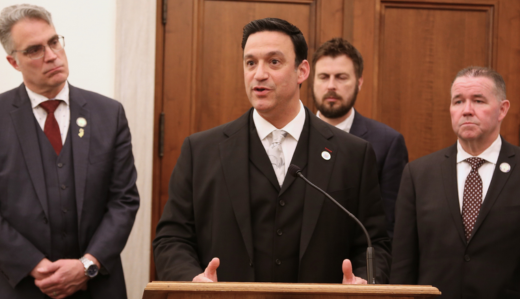TRENTON, N.J. — New bipartisan legislation introduced this week by Senators Michael Testa (R-1) and Linda Greenstein (D-14) would establish a $500 million incentive program aimed at revitalizing New Jersey’s manufacturing sector, with a focus on clean energy and job creation.
The proposal, called the “Next New Jersey Manufacturing Program,” would be administered by the New Jersey Economic Development Authority and provide tax credits to eligible manufacturers who invest at least $10 million in in-state facilities and create a minimum of 20 full-time jobs. The bill modifies parts of the “New Jersey Economic Recovery Act of 2020.”
“Manufacturing has long been the backbone of New Jersey’s economy, and it’s time we reaffirm our commitment to this vital sector,” said Sen. Testa. “This initiative represents a strategic step toward revitalizing our manufacturing industry and ensuring its growth for generations to come.”
“This is a landmark piece of legislation that will drive major investments in New Jersey’s manufacturing sector,” said Greenstein. “With the generous tax incentives included, the ‘Next New Jersey’ program will create high-quality jobs and solidify our state’s status as a leader in clean energy manufacturing.”
Program details and eligibility requirements
The bill defines eligible businesses as manufacturers or clean energy product manufacturers involved in transforming raw materials or components into finished products, including renewable energy-related goods such as solar, wind, battery storage, and hydrogen fuel technologies.
To qualify for tax credits, businesses must meet several conditions: invest at least $10 million in a facility, create a minimum of 20 new full-time jobs, and offer a median salary at least 120% of the local manufacturing median wage. Companies must also secure site plan approval, financing, and site control before entering a project agreement with the EDA.
Tax credits awarded under the program would be capped at the lesser of three calculations: 0.1% of capital investment multiplied by new jobs, 25% of capital investment, or $150 million per project. The EDA may also award bonus credits based on criteria to be established in future regulations.
Tax credit flexibility and funding reallocation
Eligible businesses could opt to receive a tax credit transfer certificate, allowing them to sell or assign the credit for at least 85% of its value. Credits must be transferred in amounts of no less than $25,000 within three years of issuance.
The bill reallocates $500 million in tax credits previously earmarked for the New Jersey Aspire and Emerge Programs to support the new manufacturing initiative. Of that total, $100 million will be exclusively reserved for the first two years of the program to encourage early adoption.
